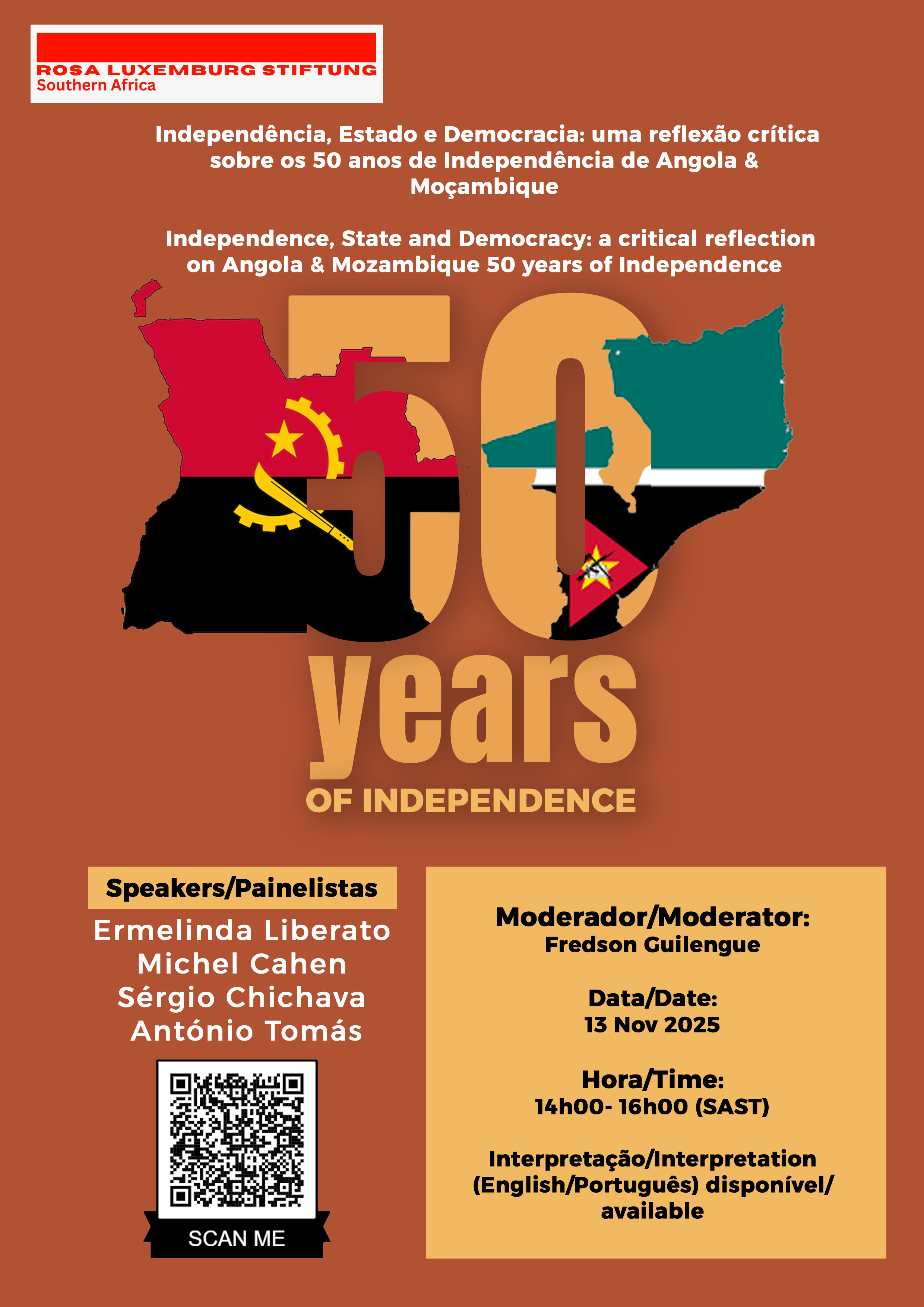
Independence, State and Democracy:
a critical reflection on Angola and Mozambique’s 50 years of independence
By
RLS
The dialogue aims to promote a critical, comparative, and interdisciplinary reflection on the 50 years of independence of Angola and Mozambique, examining the historical and political paths that shaped the construction of the state and the (democratic) regimes in these countries. The proposal is to go beyond symbolic celebration, questioning the legacies of liberation struggles, the governance models adopted, and the persistent challenges to democratization, social justice, and free and active citizen participation.
Specifically, the dialogue aims to:
- Critically revisit the independence projects: analyzing how revolutionary ideals were translated into state practices, and to what extent they remain relevant or have been diluted over time.
- Debate the construction and consolidation of the state: exploring the mechanisms of power centralization, the relationship between party and state, and the impacts of these dynamics on democratic institutions.
- Assess the democratic trajectory: considering constitutional reforms, electoral processes, the limits of political alternation, and obstacles to the effective participation of civil society.
- Incorporate plural and intergenerational voices: including perspectives from youth, women, intellectuals, activists, and representatives of marginalized communities, to enrich the debate with diverse experiences and visions of the future.
- Situate the cases of Angola and Mozambique in the regional and global context: reflecting on how the processes of independence and democratization interact with African and international trends, such as neocolonialism, extractivism, and climate challenges.
To join the discussion, click here: registration link
for more information, contact: fredson.guilengue@rosalux.org



.png)

